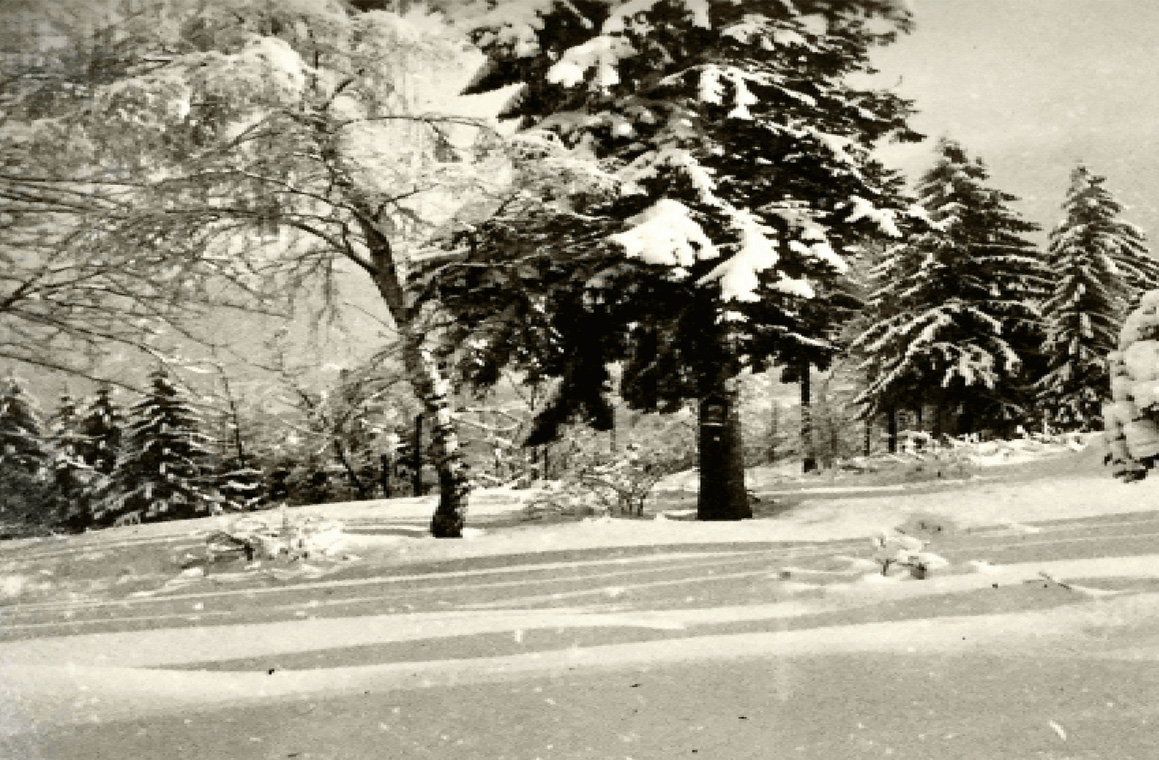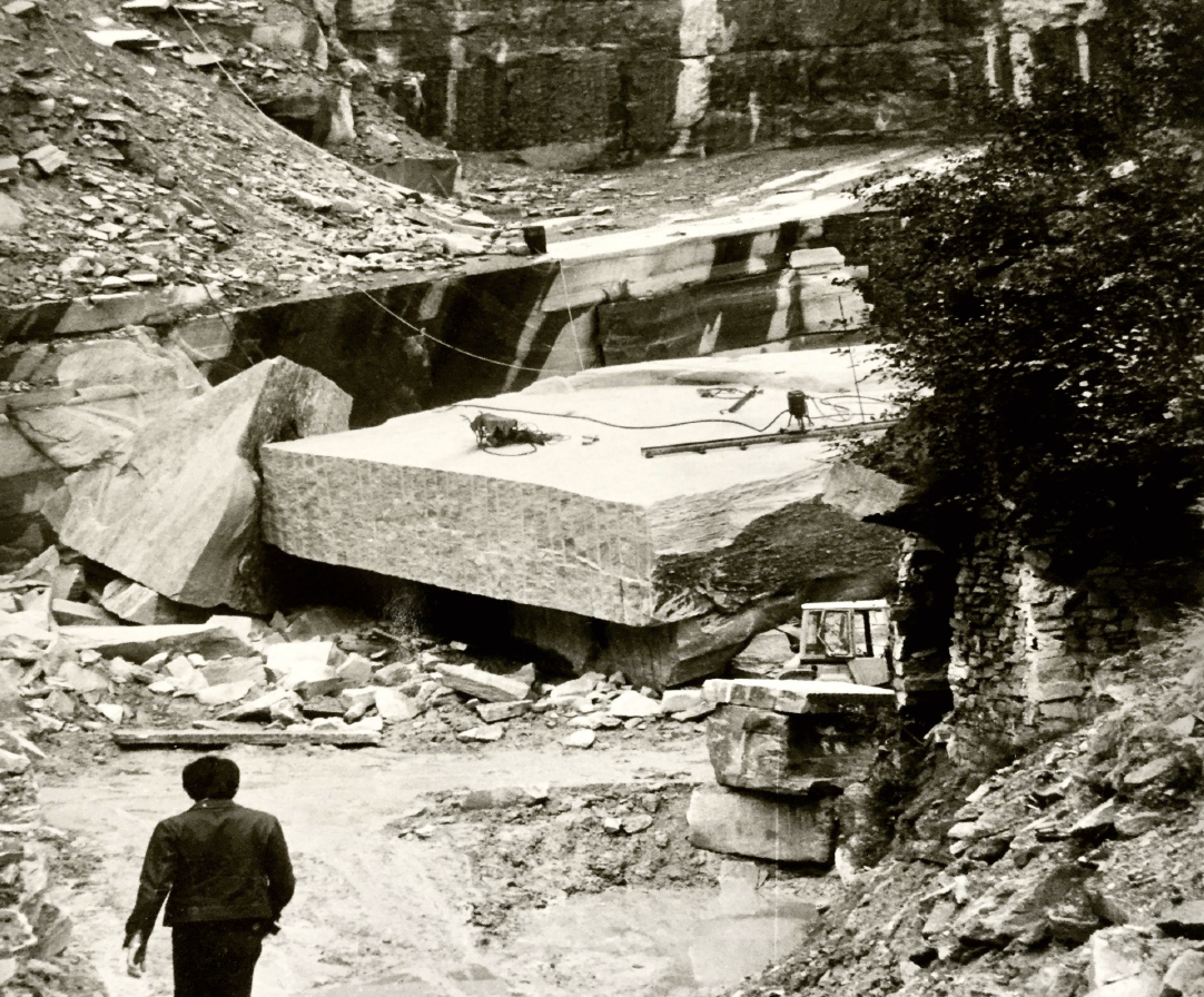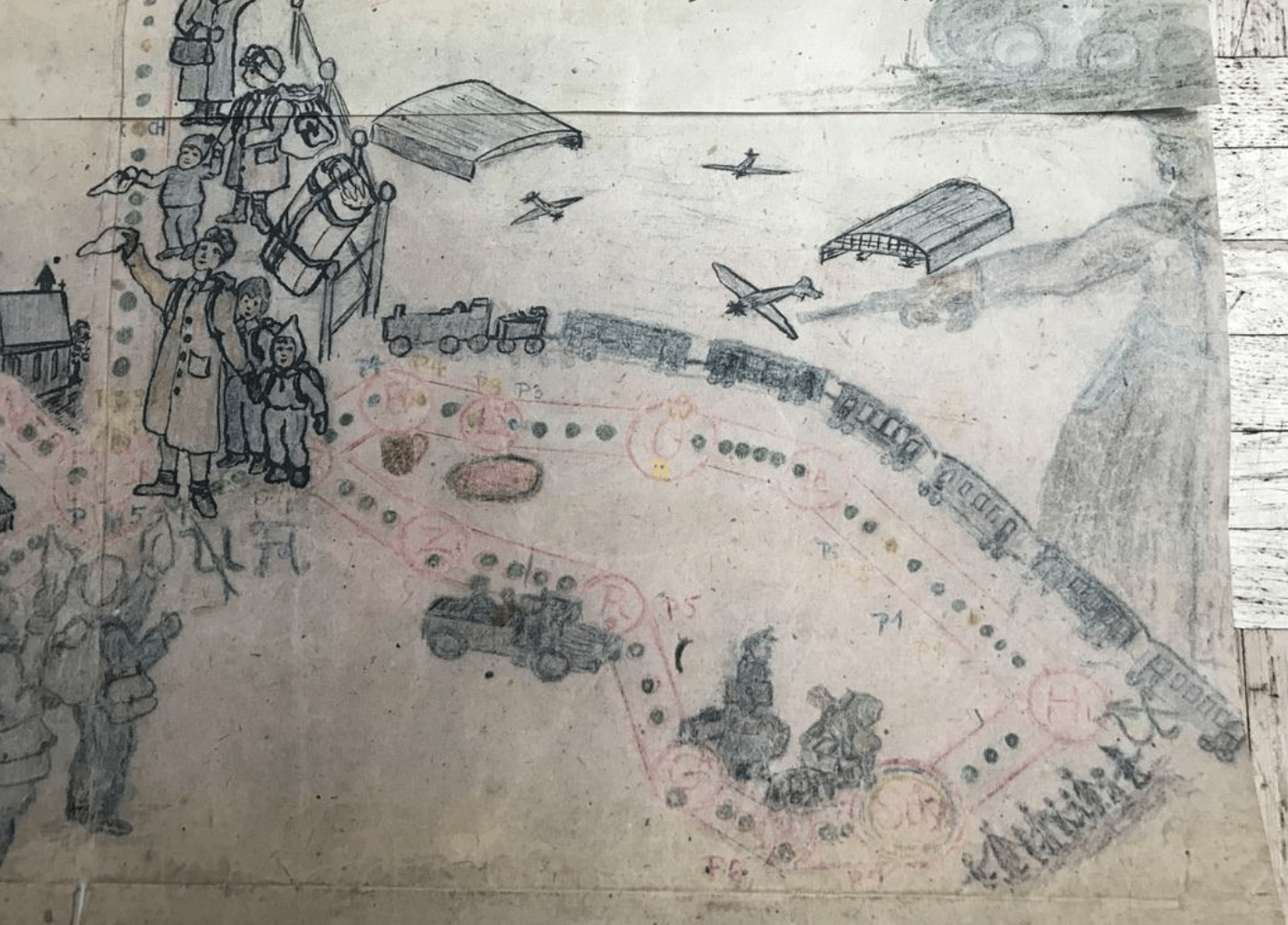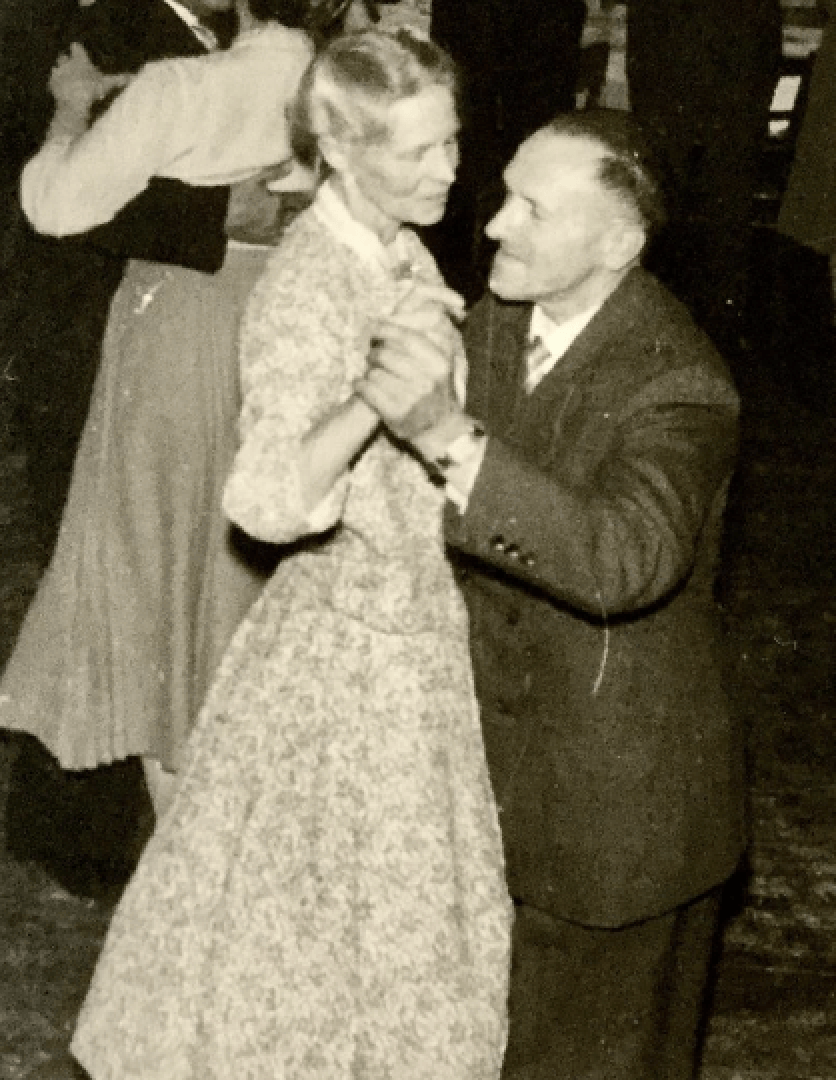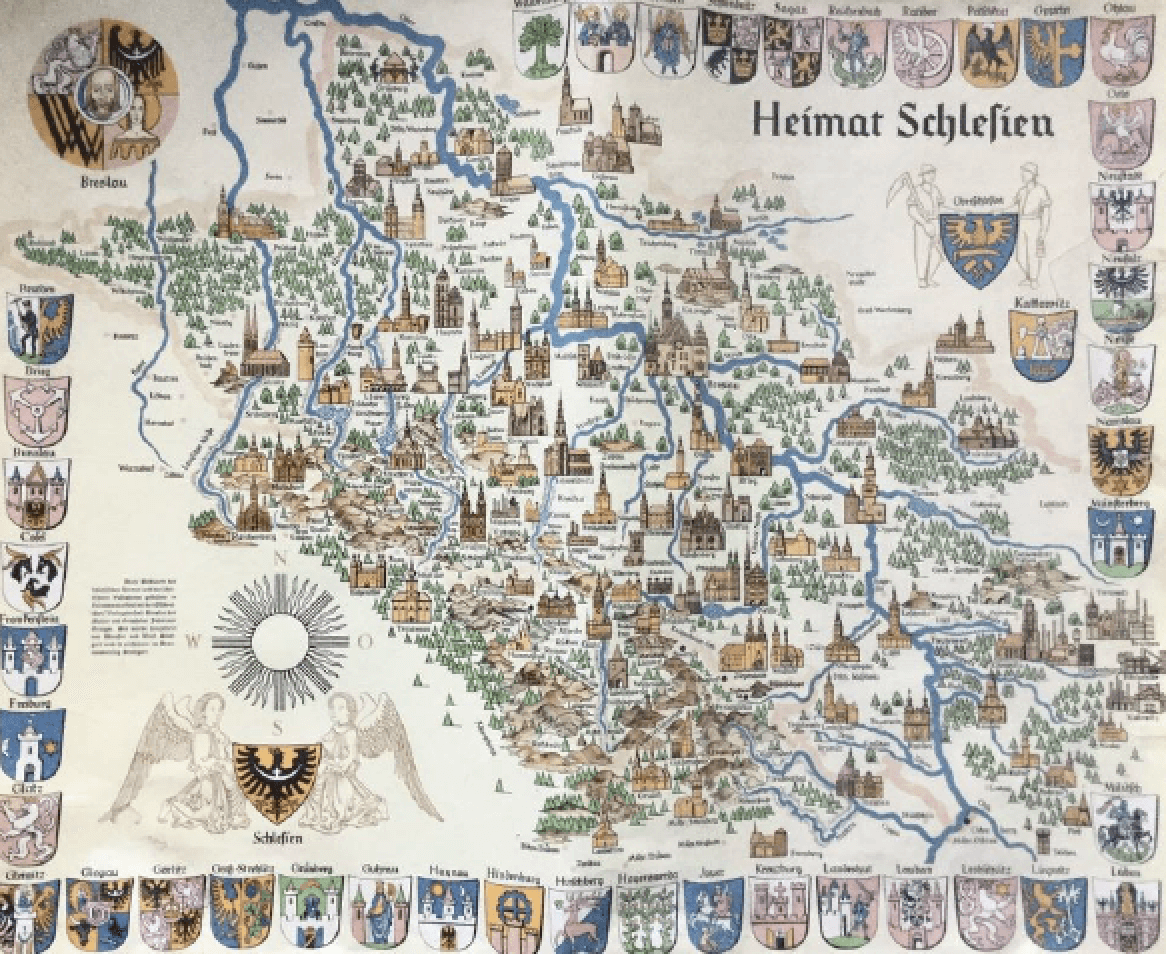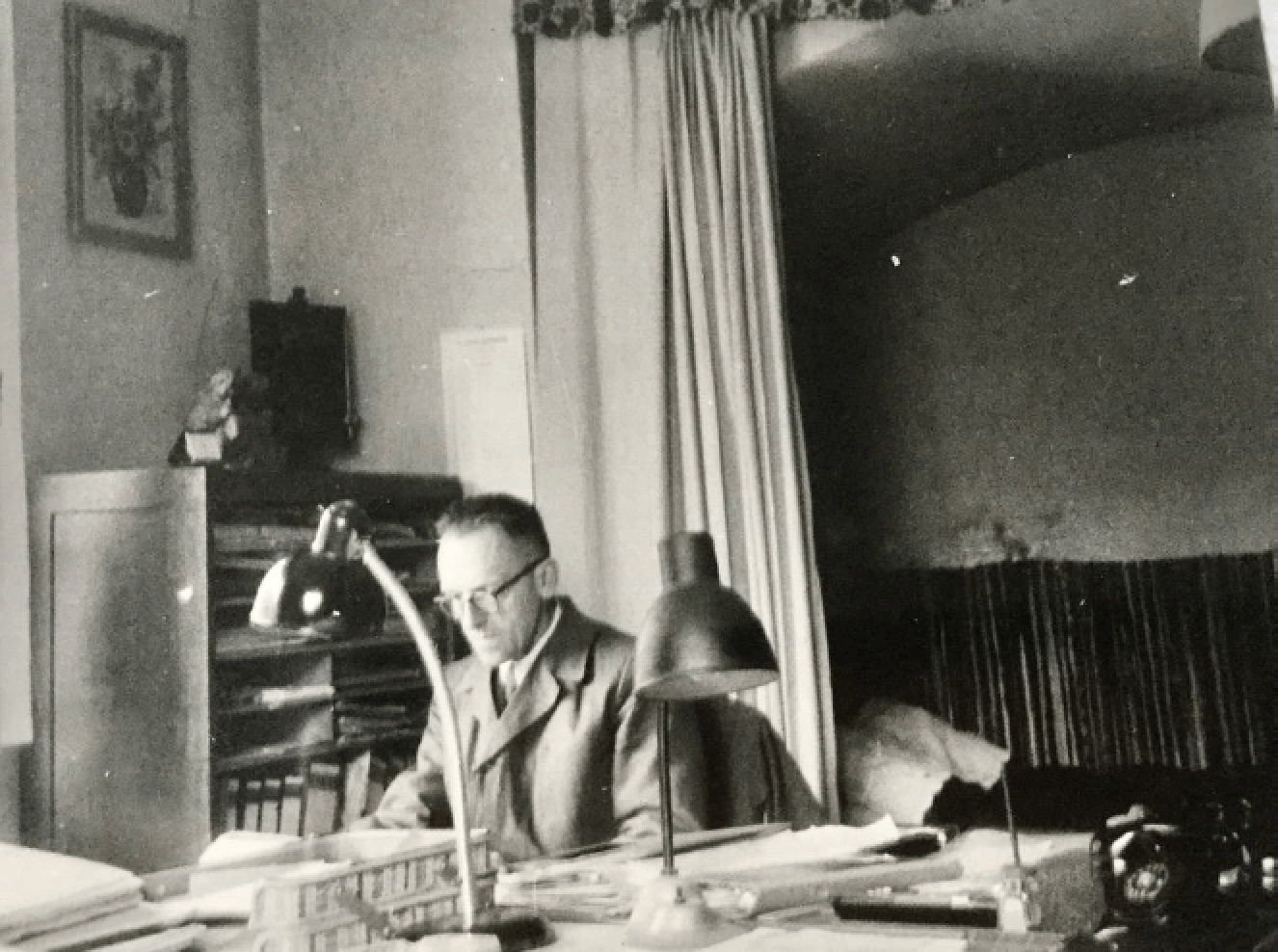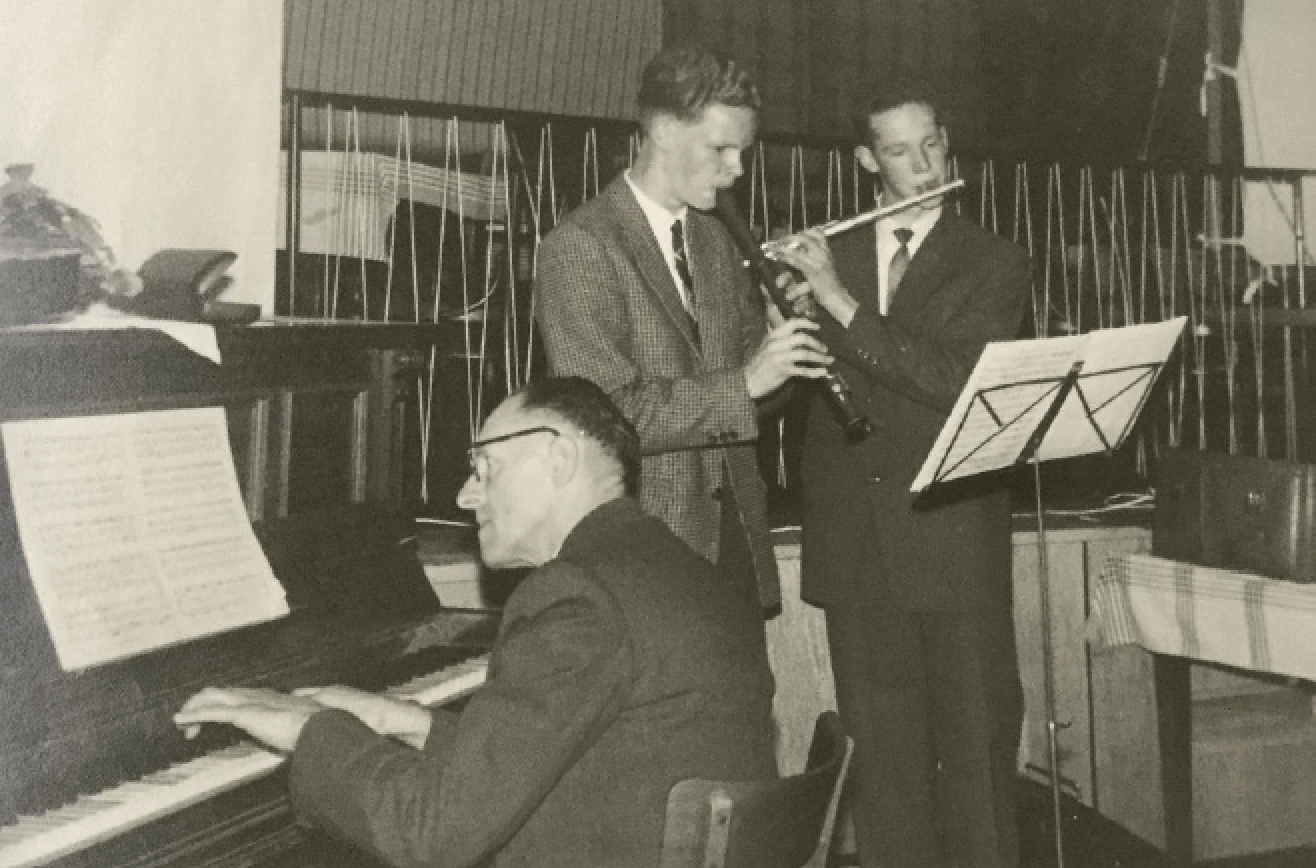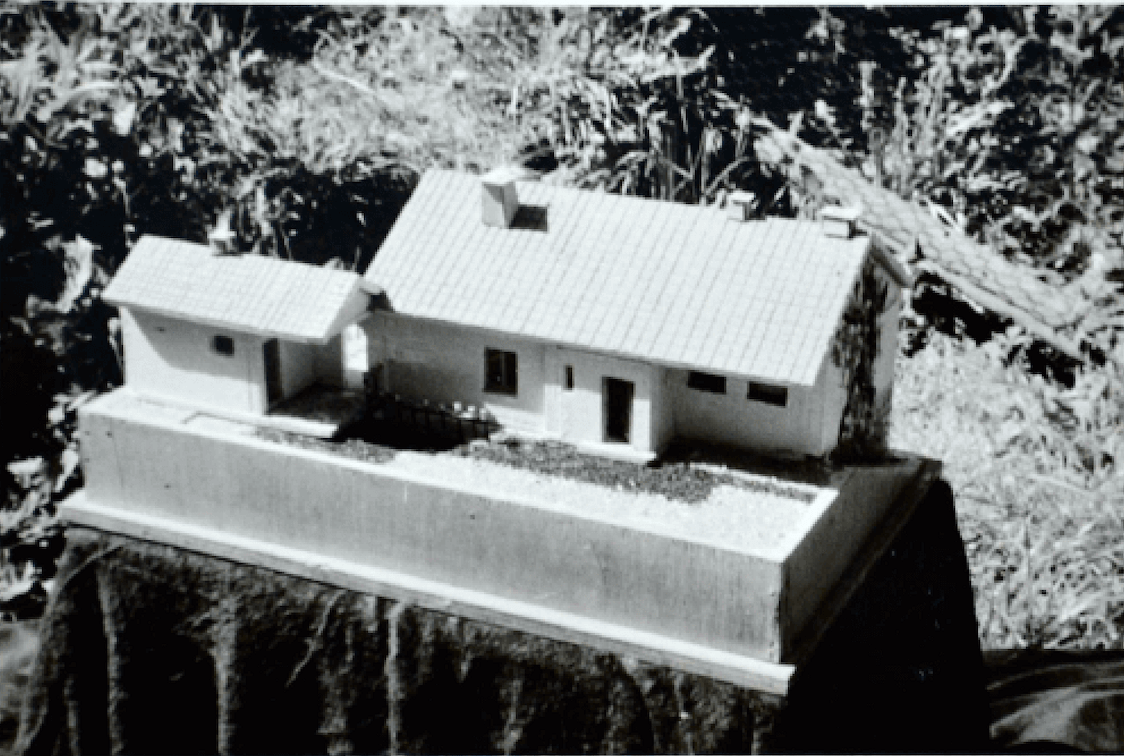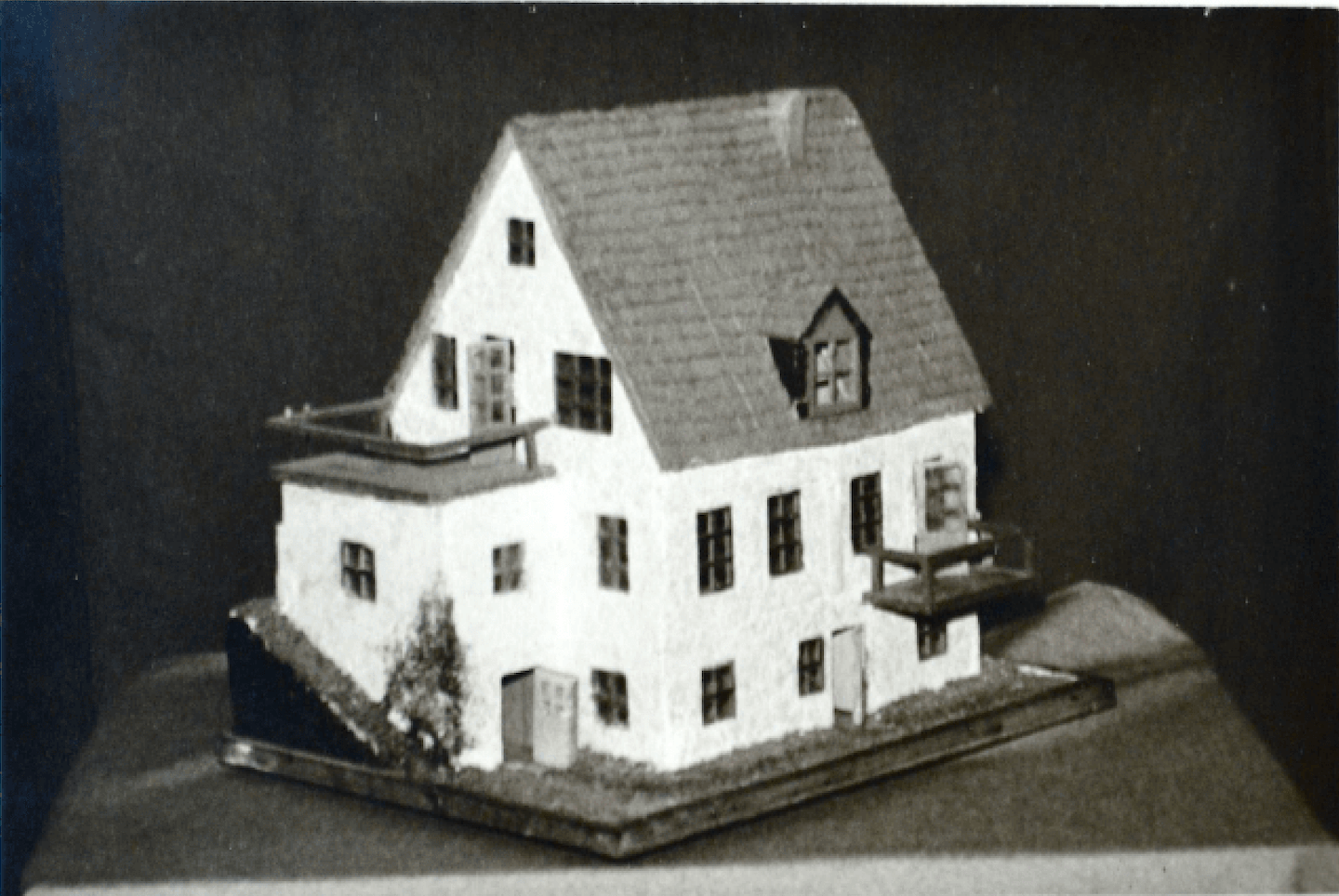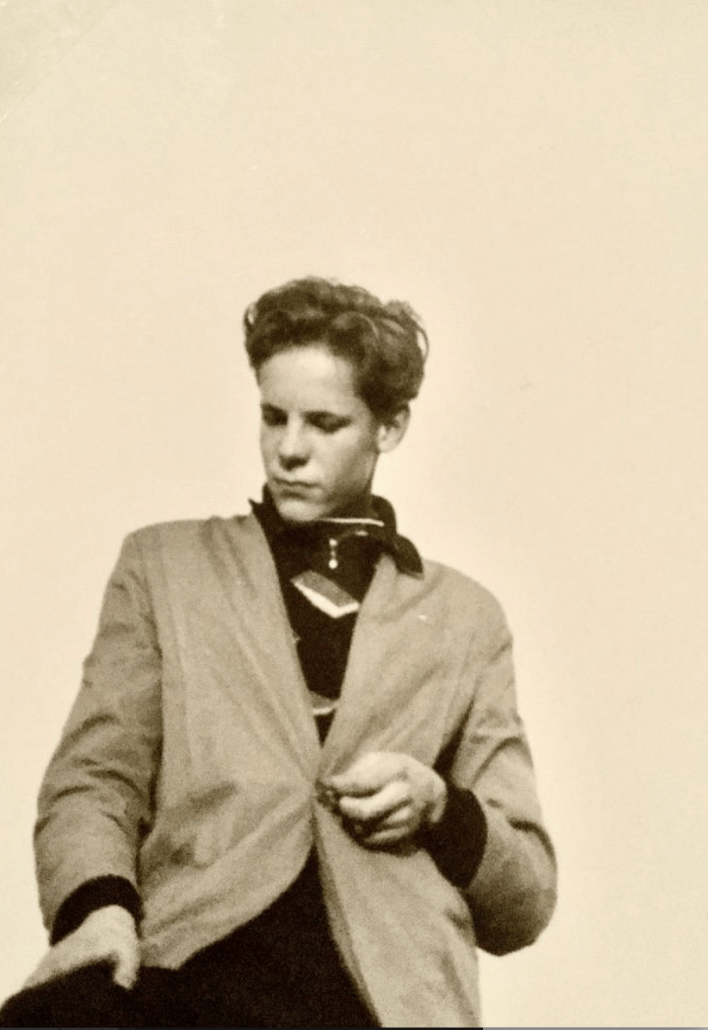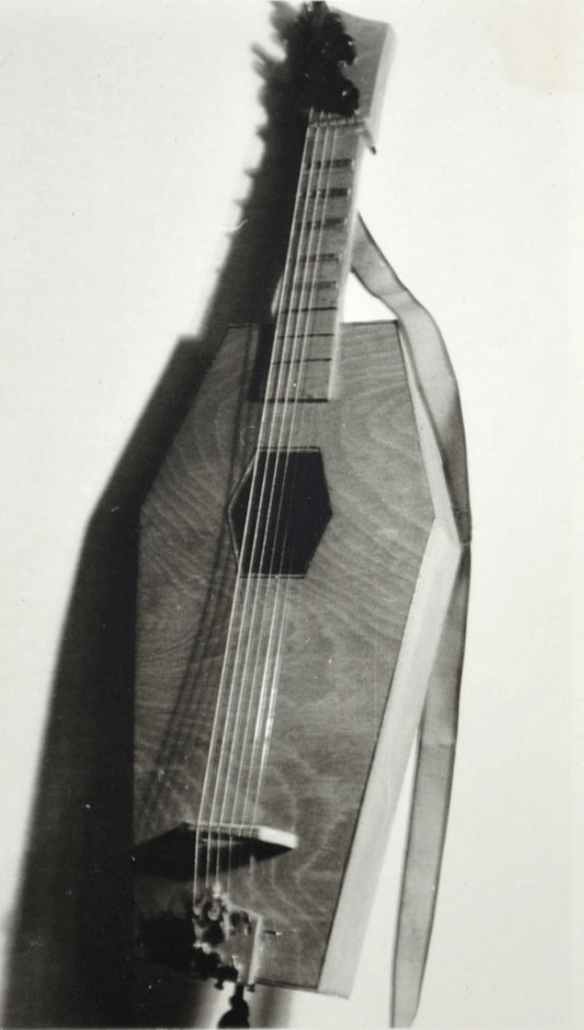1940 – December
As a child my mother wrote in her diary that I was “Himmelhoch jauchzend – zu Tode betrübt ”: cheering in joy – deadly sad.
I was born in the snow of the ’giant mountains’ of Silesia (now Poland), the ‘Riesen Gebirge’, on 11 December 1940.
With six other members of our extended family, in February 1945, I was put, carrying a rucksack, at night into the last goods train to escape from the advancing Russian army that was destroying Breslau (now Wroclaw) where my father had studied and my older brother was born. It took a week to get to Dresden, which was destroyed a week later in a firestorm by a British air raid.
1945 – February
Darkness, fires and staying in bunkers affected me and my brothers in years to come.
We lived until 1951 as refugees in Rinteln near Hameln,
taken up by a family who ran a glass factory in West Germany.
They had lost their son in the last days of this war.
I hardly took this in as we then lived in the back of their comfortable house and played in their protected garden.
I went to primary school until I was 10 but I failed the entrance exam to the Gymnasium and had to repeat the exam a year later in Limburg near Frankfurt where we moved because of my father’s work. I had briefly met him 1947 but didn’t “know” him really.
My mother joined us after years of suffering TB undergoing treatments in sanatoriums and a decisive lung operation in 1949.
My brother on the left and me on a swing with our “Mutti” and Großmutter in Screiberhau / Schlesien in 1944.
My brother used to say “leine machen” meaning alleine = I do, don’t help Me !
My grandfather with Omi and his grandchildren in 1943. I am in a chair below him.
How did it come that I was placed on this ‘Throne” with the protective hand of my grandfather behind me?
My aunt called me “ein Zappelphilipp” because I could never sit still and my grandmother living in Hamburg called me in Plattdütsch ein “Wippsteert”
“a fidget philipp”…
My grandfather was a successful businessman in Silesia. At least 600 people working with him in 7 different quarries of the natural stone industry.
He stayed on after the war ended in 1945 but could not persuade the Polish people to accept his help with the transfer. They took over his business. His diary is very measured, but in the turmoil of 1946 he lost a daughter and his own life under traumatic circumstances.
My father tried to help but was taken into a polish prison of war camp. He suffered severe humiliations but as a geologist he knew his way around and took groups out from the camp to collect herbs and mushrooms for the kitchen.
This gave him a chance to escape but it also meant that he had to live in hiding for 4 months to survive in forests and trading his mushrooms and herbs in places along the Check borders
The country my father loved.
One of the many quarries my grandfather and father managed in Silesia.
My four years older and one year younger brother and me were mostly brought up by our mother’s friend aunt Gathi, who designed this board game of our escape.
Dresden after the fire storm 13 Feb – 15 Feb 1945 A week before we went through with 7 people, too many for a friend of my mother to put us up.
The river Elbe.
THE STORY: What was it like, my
Early Childhood?
being hooded, a hood for protection, a cover
hooded – behütet – cared for – beward – warded ?
My mother rolled me in a warm blanket and left me in the snow in this health and skiing resort
as a baby
When did she tell me that?
What effect did my early childhood have on me?
What are t h e s t o r i e s?
WHAT ARE THE EFFECTS?
Why did some people say I carry some of it?
Why did some people say that my oldest daughter carries signs of a second generation trauma?
WHAT ARE THE FACTS?
What is YOUR story?
How does it compare?
WHAT IS a TRAUMA?
The Haus Stoevesandt and the terrace in the back for our mother’s Liegekuren, rest cures, as tuberculosis treatment.
Me 1950s
My mother living with one lung from 1949 on she still had to rest a lot, but was then able to run a family in a council flat with a helper.
My father drove to work in a beetle VW or with his fancy Isetta.
My mother and her three “Spatzen”, three “sparrows” as she called us, now healthy and back from sanatoriums. I am on the right.
The family and “Großmama”, the “Granny” from Hamburg, in 1957. I am on the left.
MY TEENS
My father reappeared 1947 in West Germany, run down and wounded. After recouping he joined his brother and brother-in-law to make a living in the only stone manufacturing place in West Germany that survived the loss of the big industrial spread of quarries and factories in Silesia (now Poland) that his father had run and owned. Quarries and the main factory with about 600 – 800 employees in the south of Silesia were lost and never compensated for.
My uncles and father’s efforts to reestablish the branch in West Germany only led to financial hardship
in all three families.
My father’s musical and folk musical talents and his studies and ambitions to reform the culture of cemeteries were greatly honoured – but he was not a businessman.
His romantic orientations and his rich family upbringing were very different to my mothers modest lutheran education in Hamburg. Their characters hardly matched.
References to the resistance to Hitler by Pastor Dietrich Bonhoeffer and his part of the protestant Church after 1934, dominated my upbringing from her.
The confession after the war from theologian Martin Niemöller convinced me to become a conscientious objector and to refuse national service. He said:
“First they came for the socialists,
and I did not speak out – because I was not a socialist.
Then they came for the trade unionists, and I did not speak out – because I was not a trade unionist.
Then they came for the Jews, and I did not speak out – because I was not a Jew.
Then they came for me – and there was no one left to speak for me.”
I liked our pastor who raised critical questions
about the stories of Christ in a Youth Club. But I distanced myself from going to Church, preferring ‘Searching to Churching’.
I loved playing games but more than anything theatrical sketches. Tennessee Williams “A Streetcar Named Desire” we rehearsed on four chairs to simulate a car. That was a hit.
I resented any “Heimat” = homeland sentiments. I might have looked “sweet”. Being “sweet” was not my thing when thinking about the past. That experience stayed in me.
1951 – September
By train I went to nearby Limburg to a boys’ grammar school, getting up at 6 am every morning, but I wasn’t a good learner. I had to find ways to overcome my bad memory for words and names, a lifelong struggle and nearly had to repeat one further year when I was 13. My parents tried to find alternative schools but couldn’t afford it.
1957 – May
They found another grammar school nearby and I used a moped to get there during my three final years in a gender-mixed gymnasium to reach the abitur.
The reputation of this town, Hadamar, was stained by Hitler, who had sent and murdered ‘unfit for life’ people there.
1961 – Feb
I resented the school curriculum with only very few English lessons. I learned Latin and Greek, but no art. I loved the German lessons with literature that gave me insides to my own past and added to my growing political awareness.
Questions I have:
How to get out of my own past?
How to stay away from my uprooted
family?
“entwurzelt”, without a base“?
Did I like to be a teenager?
What did I know about my parents?
What did they tell me?
What about
YOU?
and your teens?
My father was “stumm”:
He sort of did say nothing about the war but he had diaries in his office and had written a book about the story of his escape from a Polish camp – He was a person of the past to me – in a romanticised way. In hiding he had lived from herbs and selling mushrooms for 3 months in
- We heard that.
I read his book when I was 60 !, after his death ! I did take in the harsh realities in his daily notes, written on his escape. How did he survive !?
I would have liked to know more about him, and about his geology. And as he had studied in Munich.
In 1923 he was present at Hitlers beer hall putsch.
I asked myself what had attracted him to be there !?
As a teenager I was too shy to ask him those questions.
I listened to members of the family and took in what I heard from them.
We played his card game made out of stamps, called Schnipp Schnapp.
I never heard him playing more instruments than the piano but before the war he liked to play other instruments and the oboe !
Born in 1901 as a teenager he took part in the first festival of youth in Oct 1913 in Germany.
From then on he organised singing events. Sad that I never liked singing !
Sorry to say, but I was resentful when family members said I was like my father.
Why was that ? He was a creative outsider and I felt that he suffered from a lack of recognition in the wider family.
But I really got to know him only after the war. WHAT IS THE RELATIONSHIP TO
YOUR FATHER ?
Sad – and unjust – that I always felt sorry for him.
He took me to sleep for a night in the forest. I was dreadfully scared. He took me to the top of a tower and tried to persuade me to look over the wall holding my feet. I was scared.
I was scared during nights. And of fires ! I
run away from a youth hostel built on a rock and lit from underneath. People found me next morning 14 km down the road nearer to our home.
My mother favoured me, I thought.
She talked about her parents in Hamburg, loved very much her father who lost his job in the 20s working for a business as a clerk in Mexico, but then as an employee for a train company. There he lost his health and died from pneumonia during the financial troubles of the late 20s.
My mothers brother was an extrovert and a successful art historian. He was the one we all looked up to. And he influenced me.
My mother was a carer for children, – eine Kindergärtnerin (= a gardener who looks after children growing up !) –
When away from her own children because of her TB she read a lot and past on to me what she knew.
She fearlessly trusting us children. That she passed on to me, trusting others and myself.
She thought I should become a carpenter.
Sadly, physically I couldn’t really bond. But why ?
I knew her as a patient.
Was it the physical distance and that I felt sorry for her ?
This is not fair at all as she was really a very good and caring person.
What is it about me that I can not easily bond ?
It is not easy to select events of my past and to avoid injustice to “my” people and to myself.
What I do here is a base for more thoughts and views.
Why is it that about 60 years later – I call it a delay – I reflect on the past after the second world war – that really should have led to actions – in my case and now to reactions, as we are living in and through wars again.
Any reader might be aware by now what I am for:
Contacts is what this Web could bring about
…
= conversations, not con – front – tations …
So far I had left out to mention anything about the political situation I was aware of at the time of the 60s. It was the ‘COLD WAR’, the East-West conflict and for our family the concern about the divided Germany. My parents knew at least 4 families and a number of friends and my father knew many employees from before the end of war living in the Russian Socialist East of Germany. These people lived with increasing difficulties and restrictions to travel to the West. Everybody knew that WE had benefited from the Americans after the war and thereon. We were rich in comparison and send parcels containing food, letters and literature. We had received similar care packages from Sweden after the war. Unforgettable the blue-yellow flags on the parcels with Swedish toys at the times nearer to Christmas.
In 1954 my father arranged a business trip to the Tessin concerning the buying of suitable stones for monuments that could be manufactured and sold. He drove all 5 of us through Switzerland and high up into quarries at the Italian side, all in a VW Beetle. It was a sensation. I recorded afterwards every detail in a massive book containing photos, collages, writings, many drawings and water colours. Looking back it was a kind of forerunner scrap albums I did in the 80s for my own family then. My mother sent this volume to friends in East Germany. It was enjoyed by some but never arrived at others.
Nobody could ever find out what had happened … It was gone… It was my first REALLY felt experience of loss … and good for that?
My father managed another trip to a befriended family with 6 children in Naumburg in East Germany. On the border we were not allowed to leave the train. I was shaken by guards checking our papers before permission was given to my mother and my two brothers at least to step out to the station. My father was taken away for an extensive interrogation.
We were left without him throughout the day with great fear. Then he arrived back but, …
no reason was given and he didn’t talk about it.
Could it be that because the family we were about to visit had 3 of their children already in West Germany to study. And that they had remained to stay in the West ?
Next – 60s – 70s

